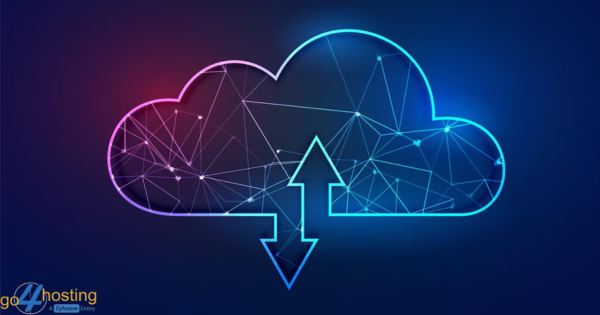Cloud Storage Solutions: What you need to know in 2024

In 2023, cloud storage emerged as a highly convenient and efficient way of storing data online. With over 60% of the world’s corporate data securely housed in the cloud, their demand is expected to rise. Read on to discover the essential information to ace your cloud storage game in 2024.
What is Cloud Storage?
Cloud storage represents a computing service model that enables the transmission, storage, and retrieval of files and data at a remote, offsite location through the internet, facilitated by a cloud service provider. The operational aspects of the data storage service are overseen and managed by the cloud provider. It includes hosting, security, maintenance, and server management. It offers businesses cost-effective and scalable data storage solutions.
You can access your cloud storage through a dedicated private network or the public internet. The host ensures that you can access your data whenever required. Cloud storage service payment structures typically involve a consumption-based model or a monthly rate.
Types of Cloud Storage
Cloud storage has enabled individuals and organizations to store digital data conveniently and access it from any location. It serves as a virtual hard drive. To identify the most suitable cloud storage solution, users must first assess their specific needs. Typically, it’s divided into three categories:
1. Public Cloud Storage
In public cloud storage, multiple customers share scalable storage provided by a service provider. Authorized users can access it online, and minimal administrative controls are required. It eliminates the need for the user or company to manage the system. Service providers facilitate convenient access to data for their customers, enabling them to utilize various devices such as desktops, tablets, and smartphones.
2. Private Cloud Storage
The private cloud storage model shares similarities with public cloud storage, with a notable distinction: the storage infrastructure is situated within the client’s on-site network. The company’s firewall protects the data, making it an ideal choice for companies with significant investments in data centers that can handle data privacy internally. Opting for private cloud storage provides users with complete control over their data. A cloud storage provider can develop and manage private services, granting exclusive access to its customers. Alternatively, clients can oversee all hosting and operational responsibilities independently.
3. Hybrid Cloud Storage
The hybrid option is a fusion of public and private cloud storage attributes. It allows customers to decide which data is stored with an external provider and which remains within their in-house infrastructure. Hybrid clouds are particularly advantageous for organizations looking to enhance their data storage capacities without substantial investments in new in-house infrastructure.
Cloud Storage Trends to Look Out in 2024
2024 is expected to witness a surge in data storage on cloud architectures, driven by the intersection of technology advancements and evolving market conditions.
1. AI Integration
Undoubtedly, the foremost trend anticipated in 2024 revolves around the integration of AI into storage management. Administrators are expected to rely more heavily on AI for diverse tasks. It includes but is not limited to storage provisioning, capacity planning, backups, and predicting potential failures. AI is also proving to be beneficial in workload migration tasks.
In 2024, numerous storage providers will probably introduce AI-powered new features. Many of these AI-driven capabilities will likely evolve into standard features that nearly all storage providers may offer.
2. Ransomware Protection
Ransomware stands out as a significant threat to an organization’s data integrity. A careless click can unleash a ransomware infection, leading to extensive data loss.
Aligned with the ongoing trend of storage providers incorporating AI for efficient storage management, the latter will also play a pivotal role in combating ransomware. AI capabilities will be instrumental in accurately detecting and responding to ransomware threats.
3. Hybrid Cloud Integration
Remote work’s surge and evolving client needs fueled rapid cloud adoption. As per a Forrester report, 94% of enterprise IT decision-makers in the United States incorporated some form of cloud deployment last year.
While the momentum favors cloud-native approaches, the pragmatic reality is that numerous companies will choose to maintain critical systems on private clouds or on-premises infrastructure. Concurrently, they exploit public clouds for business operations and customer services. It has led to a notable rise in hybrid cloud adoption to cater to diverse needs. The ability to seamlessly transfer data between these storage types, aligning strategies with modern IT operations’ requirements, attracts many.
4. NVMe
The emergence of NVMe (Non-Volatile Memory Express) technology is reshaping cloud storage by significantly improving its capabilities through rapid data transfer and minimal latency. Despite facing challenges such as costs, backward compatibility issues, and awareness concerns, the market shows great potential, especially in enterprise storage, cloud computing, gaming, and consumer electronics.
It’s essential to highlight that, as NVMe gains momentum in the data storage arena, some retailers are still catching up, particularly in supporting NVMe-over-TCP. This limitation restricts deployment options for those seeking high-speed performance. Nevertheless, the stage is set for NVMe to continue its upward trajectory, instilling optimism about its prospects.
5. Consumption-Based Pricing
Usage-based pricing for on-premises workloads gained popularity due to the rapid adoption of the public cloud. This allowed organizations to avoid substantial upfront investments in IT hardware and software. It runs the workloads on a cloud provider’s infrastructure, and users only for the resources utilized.
While the costs associated with cloud operations prompt many organizations to reconsider, repatriating workloads back in-house doesn’t necessarily imply abandoning consumption-based pricing.





